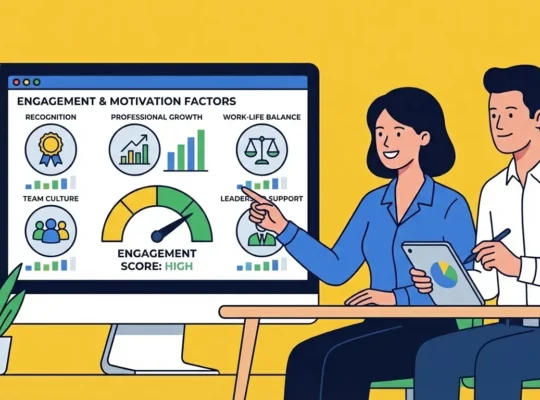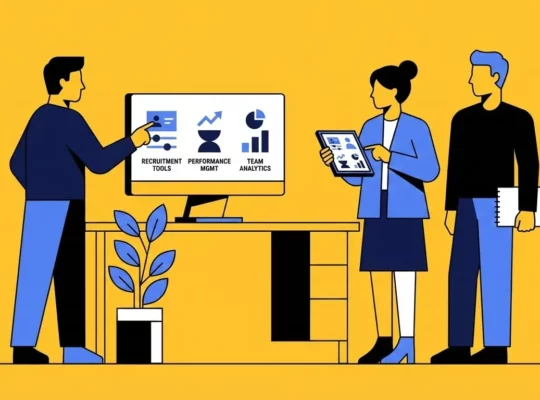Employee reviews are pivotal for both employee development and overall organizational success. They provide a structured forum for assessing performance, identifying growth opportunities, and fostering open communication. Well-crafted questions are the cornerstone of these reviews, acting as catalysts for insightful discussions and actionable outcomes. An effective review is not a one-way street; it’s a dynamic, two-way conversation where both the employee and manager actively participate in shaping the path towards success. It ensures that the employee feels heard and valued.
The right employee review questions can transform a potentially stressful event into a productive dialogue. When thoughtfully designed and skillfully employed, these questions unlock valuable insights that drive individual and organizational growth.
Core Question Categories for Comprehensive Reviews
The effectiveness of a review hinges on the quality of the questions asked. By categorizing employee review questions, HR professionals and managers can ensure a comprehensive and well-rounded assessment of an employee’s performance and potential.
Accomplishments, Contributions, and Strengths
Uncovering what an employee has achieved and the value they bring to the organization is paramount. Review questions in this category illuminate areas of success and provide a platform for the employee to showcase their contribution to the company.
Questions to uncover employee’s value-added
- “What are you most proud of accomplishing since the last review?” This question allows employees to highlight projects and initiatives where they excelled, offering insight into their priorities and areas of expertise.
- “What are your biggest wins this past period?” This question encourages the employee to focus on tangible results and achievements.
- “How have you helped the company to achieve its goals since your last review?” This inquiry directly links individual efforts to organizational objectives, demonstrating the employee’s understanding of the bigger picture.
- “What contributions are you most proud of?” This helps to elicit moments that the employee deems noteworthy and impactful.
Uncovering key skills and strengths
- “What are your key skills and areas of expertise?” This helps identify the assets an employee brings to the table and assists with allocating tasks appropriately.
- “What new skills have you acquired?” This question highlights an employee’s commitment to professional growth and adaptability.
- “What aspects of your job do you find most motivating?” Understanding the motivators uncovers what fuels their passion and how they are most effective within the parameters of their role.
Areas for Improvement, Weaknesses, and Challenges
Constructive feedback is essential for employee growth. Employee review questions in this category encourage self-awareness, identify potential roadblocks, and provide opportunities for tailored support and resources.
Questions to foster self-awareness and growth
- “In what areas do you feel you could improve?” This question promotes self-reflection and encourages employees to identify their own development areas.
- “What are some areas of improvement you want to focus on?” This focuses on what areas the employee wants to proactively work to improve.
- “What are your biggest challenges at work?” This prompts the employee to identify obstacles hindering their productivity and allows for collaborative problem-solving.
- “What’s not working?” Sometimes a direct approach is best, by asking this, you open a clean slate.
Address roadblocks & pain points
- “Are there any roadblocks preventing you from achieving your goals?” This probes for systemic issues or resource limitations that may be hindering performance.
- “What’s draining your energy?” This question helps identify tasks or responsibilities that are not aligned with the employee’s strengths or interests, leading to potential adjustments.
Goals, Career Development, and Aspirations
Understanding an employee’s goals is crucial for aligning individual aspirations with organizational objectives. By inquiring about future goals, you can identify training needs, development opportunities, and potential promotion prospects.
Questions to align employee goals with organizational objectives
- “What are your short-term goals?” This allows for tracking on whether or not expectations have been made regarding their role.
- “What are your long-term goals at the company?” This shows commitment and helps understand the employee’s perspective on their potential tenure with the company.
- “What are your career goals and aspirations?” This question helps align individual goals with organizational needs, enabling targeted development planning.
- “What are your key objectives for the next review period?” This focuses performance and aids in the creation of SMART goals moving forward.
Identifying development and training needs
- “What opportunities for professional development would you be interested in?” This gauges interest in specific training programs or skill-building activities.
- “What is one area where you would like to master a new skill?” This pinpoints specific areas where an employee desires expertise.
- “What are your training and development needs?” This prompts the employee to articulate specific training requirements, facilitating targeted learning initiatives.
- “How do you ensure you keep learning and growing at work?” This gives a peek into what actions the employee takes towards personal and professional improvement, and ensures ongoing learning.
- “Do you feel you are growing professionally?” This gauges whether the employee thinks they are on the right trajectory, and what can be done if otherwise.
Feedback, Support, and Resources
Creating a supportive environment is vital for employee success. Soliciting feedback on resources, needed tools, and asking questions focused on how the manager can provide better support demonstrates a commitment to employee wellbeing and performance.
Questions to improve manager and organizational support
- “How can I better support you?” This empowers the employee to voice their needs directly, fostering a sense of collaboration.
- “What can I do to better support you?” A rephrasing of the previous question that can sometimes elicit different responses.
- “What support do you need?” By being direct, sometimes employees will provide clear, concise and direct answers, leaving no room for interpretation.
- “What do you need to be more successful?” This opens the floor for suggestions and direct ideas which can be implemented almost immediately.
- “What can the company or your manager do to help you be more effective?” This allows the employee to think bigger in terms of what the workplace could be like.
Assessing resource adequacy
- “Do you feel you have the resources to do your job well?” This highlights potential resource gaps and ensures employees have the necessary tools for success.
- “Do you see opportunities to work more efficiently?” Gaining employee opinions and insight on this, could provide solutions for improving productivity.
Job Satisfaction, Engagement, and Values
Happy and engaged employees are more productive, innovative, and committed. Employee Review questions focused on job satisfaction and employee satisfaction help gauge overall wellbeing and assess alignment with company values.
Employee wellbeing is paramount
- “Are you happy with your current role?” This simple question provides a temperature check on overall job satisfaction.
- “Do you feel valued?” Feeling appreciated is critical for engagement and retention.
- “Do you feel any part of your job description no longer fits?” Tasks evolve, and it is important to ensure they align with the employees overall skillset.
Assessing alignment with company values
- “How effectively are you managing your time?” Time is an important resource and this question promotes better time management.
- “How do you handle stress?” Knowing how your employees handle stress is important to support them when needed.
- “How do you deal with conflicts at work?” Assessing this helps to build a more collaborative, less stressful environment.
Performance and Expectation Alignment
Assessing whether an employee is meeting expectations and has a clear understanding of their responsibilities is crucial for ensuring accountability and driving performance. These questions help bridge any gaps in understanding and provide opportunities for clarification.
Have expectations been met?
- “Are you meeting expectations?” This question directly assesses whether the employee believes they are achieving established benchmarks.
- “How has your performance changed since the last review?” This tracks improvement over time and identifies areas where progress may have stalled.
- “Do you have a clear understanding of your role objectives and responsibilities?” This question ensures the employee knows what is expected of them.
- “What are the major challenges in the year to come?” Prepping for the year ahead, helps you stay on top of possible challenges.
Feedback of the Performance Management system is key
- “What do you think of the performance management system being used?” This question makes sure the employee feels heard on existing processes in place.
Tailoring Questions for Different Review Types
The best employee review questions depend on the type of review being conducted. Adapting your approach ensures that the questions are relevant, focused, and yield actionable insights.
- Ongoing/Informal Check-ins:
Informal check-ins are about agility, addressing current concerns and maintaining momentum. These questions should focus on current projects, roadblocks, and immediate support needs, facilitating swift intervention and maintaining productivity.
Example: “What’s your biggest priority this week?” “Is there anything blocking your progress on [Project Name]?” - Self-Evaluations:
Self-evaluations are invaluable for fostering self-awareness. Adapt questions from previous sections to encourage honest reflection on strengths, weaknesses, and contributions. - Formal Performance Reviews:
Formal reviews demand comprehensive questioning. These require a thorough examination that covers all key areas and integrates quantitative data alongside qualitative feedback for a holistic assessment. - 360 Reviews:
360 reviews offer feedback from multiple perspectives. Center employee review questions on teamwork, communication, and leadership skills, as perceived by peers, offering insights into how the employee functions within a broader team dynamic. - New Hire Evaluations:
New hire evaluations are key to improving onboarding and ensuring the new employee has a sound understanding of the role. Adapt questions to gauge overall experience, onboarding, strengths, and challenges in a new hire’s role to fine-tune the onboarding process.
Best Practices for Asking and Using Review Questions
Asking the right questions is only half the battle. How you ask them and what you do with the answers are equally crucial for driving meaningful change.
- Framing Questions for Growth:
- Focus on behaviors, not personality. When asking, focus on the actions taken by the employee, nothing else.
- Use positive and constructive language. Using positive language keeps things encouraging.
- Frame questions to inspire reflection and employee growth. Inspire employees to give honest answers.
- The Art of Active Listening:
- Listen attentively to employee responses. Do not interrupt.
- Ask clarifying questions. Do not be afraid to ask questions, as long as they are professional.
- Show empathy and understanding. Practice patience as you listen.
- Creating a Safe Space:
- Build trust and psychological safety.
- Emphasize that the review is a collaborative process.
- Documenting and Acting on Feedback:
- Take accurate notes during the review.
- Develop a plan for addressing concerns and supporting employee development.
- Follow up on action items and provide ongoing feedback.
- Preparing for the Review Process
- Prepare the employee for the review process in advance.
- Encourage employees to evaluate themselves honestly.
- Question Formats:
- Use a mix of open-ended and closed-ended questions.
- Giving Feedback
- Focus on specific behaviors when giving feedback.
Avoiding Common Pitfalls
Even with the best intentions, it’s easy to fall into common traps that undermine the effectiveness of employee reviews.
- Leading Questions: (Example: “Don’t you think you could have done better?”)
- Vague Questions: (Example: “How are things going?”)
- Overly Critical or Negative Questions: (Focus on solutions, not blame.)
- Skipping the Follow-Up: (Not addressing concerns raised in the review.)
FAQs about Employee Review Questions
Who should be responsible for conducting employee reviews?
Typically, the employee’s direct manager is responsible for conducting the review process, often with input from HR. 360 reviews also incorporate feedback from peers and subordinates.
What makes an employee review question effective?
Effective employee review questions are clear, concise, and focused on specific behaviors or outcomes. They should be open-ended to encourage detailed responses and framed in a positive and constructive manner to foster growth and development. They should address the employee’s areas of strength and identify areas where improvement may be needed.
When should employee reviews be conducted?
The cadence of employee reviews varies depending on the organization, usually annually or bi-annually, after a new hire, or when an employee switches roles. However, ongoing check-ins and informal feedback should be provided more frequently to ensure continuous performance management and support.
Where can managers find examples of good employee review questions?
Managers can find examples of employee review questions online through HR resources, performance management platforms, and industry best practice guides. Review.jobs, for example, provides resources and templates to help managers conduct effective reviews. Reviewing successful reviews in your organization can be useful, too.
Why are employee review questions critical for performance management?
Employee review questions are critical because they provide a structured framework for assessing performance, identifying development opportunities, and fostering open communication. They help ensure that employees receive constructive feedback, understand expectations, and align their goals with organizational objectives, leading to improved individual and team performance.
Asking the right employee review questions, tailored to the individual and context, unlocks a wealth of information that drives performance, engagement, and overall organizational success.
This thorough guide has equipped you with the knowledge and tools needed to create impactful employee reviews that foster a culture of continuous employee growth. With a well-crafted set of employee review questions and a commitment to active listening and follow-up, you can transform the review process into a powerful engine for improvement and development within your organization. Remember to leverage our employee review platform Review.jobs to enhance your performance management and talent development efforts.





